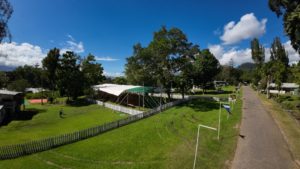Undergraduate Programs
Overview
The school offers a course leading to the degree Bachelor of Mechanical Engineering (Honors). The course involves four years of full-time study post Grade 12 entry. More background information about the course can be found in the link below.
The school admits students to its First Year Engineering programme with minimum requirements of B in Mathematics (extension) and Physics, and C in English, or equivalent. Students with strong backgrounds in mathematics are given preference.
Minimum grades of requirements are:
- English – B
- Major mathematics (Maths A) – B
- Physics – B
- Chemistry – B
- Physics – B
Intake Quota:
- School Leavers – 40
- Non-School Leavers – 5
- International – 5
School Leavers:
STAT_P Test Score is a requirement for School Leavers (SL)
School leavers apply through the normal School Leavers Form (SLF) applications.
Non-school leavers:
Tentatively accepted non-school leavers are required to sit for an entrance examination. The
final admission into the program will depend on their performance on the entrance
examination (minimum average score of 70%). The entrance examination consists of similar
questions for grade 12 examinations on the core subjects, such as Major Mathematics,
Physics, English, and Chemistry.
| Code | Subject | Credit Points | Contact Hours | Subject Outline |
| EN111 | Engineering Practice and Sustainability | 18 | 6 hrs / week (2 Lectures, 2 Tutorial, 2 Project) | Click to view |
| EN112 | Engineering Materials and Properties | 18 | 6 hrs / week (4 Lectures, 2 Tutorials) | Click to view |
| EN113 | Engineering Materials and Properties | 18 | 6 hrs / week (3 Lectures , 3 Practical) | Click to view |
| EN114 | Engineering Computation | 18 | 6 hrs / week (4 Lectures, 2 Laboratories) | Click to view |
| Code | Subject | Credit Points | Contact Hours | Subject Outline |
| EN121 | Engineering Mathematics II | 22 | 6 hrs / week (4 lectures, 2 tutorials) | Click to view |
| EN122 | Engineering Mechanics | 18 | 6 hrs / week (3 Lect, + I Tut, + 2 lab) | Click to view |
| EN123 | Introduction to Circuits | 19 | 6 hrs / week (3 Lect, 2 Lab, 1 Proj.) | Click to view |
| EN124 | Introduction to Engineering Design | 15 | 6 hrs / week (2 Lect) + 1 Tut + 3 Proj/Lab) | Click to view |
| Code | Subject | Credit Points | Contact Hours | Subject Outline |
| EN211 | Computer Aided Design | 18 | 6 hrs / week | Click to view |
| ME211 | Thermodynamics | 20 | 6 hrs / week (4 Lec, 1 Tut, 1 Lab) | Click to view |
| EN212 | Engineering Mathematics III | 20 | 6 hrs / week (4 Lec, 1 Tut, 1 Lab) | Click to view |
| ME212 | Numerical Methods | 18 | 6 hrs / week (3 Lect; 2 Tut; 1 Proj) | Click to view |
| Code | Subject | Credit Points | Contact Hours | Subject Outline |
| EN221 | Engineering Modelling | 18 | 6 Hours/Week | Click to view |
| ME221 | Thermal Power | 20 | 6 hrs / week (4 Lec/ 1 Tut/ 1 Lab) | Click to view |
| ME222 | Solid Mechanics | 18 | 6 hrs / week (3 Lec/ 2 Tut/ 1 Lab) | Click to view |
| ME223 | Fluid Mechanics | 18 | 6 hrs / week (3 Lect; 2 Tut; 1 Lab) | Click to view |
| Code | Subject | Credit Points | Contact Hours | Subject Outline |
| ME311 | Mechanics of Machines | 20 | 6 hrs / week (4 Lec/1 Tut/1 Lab) | Click to view |
| ME312 | Machine Design | 20 | 6 hrs / week (4 Lec/1 Tut/1 Lab) | Click to view |
| ME313 | Heat Transfer | 20 | 6 hrs / week (4 Lec / 1 Tut / 1 Lab) | Click to view |
| ME314 | Manufacturing Processes and Design | 20 | 6 hrs / week (4 Lec/1 Tut/1 Lab) | Click to view. |
| Code | Subject | Credit Points | Contact Hours | Subject Outline |
| EN321 | Project Management and Economics | 20 | 6 hrs / week (4 Lec/1 Tut/1 Lab) | Click to view |
| ME321 | Vibration Analysis | 20 | 6 hrs / week (4 Lec./1 Tut./1 Lab) | Click to view |
| ME322 | Metal Cutting and Tools | 20 | 6 hrs / week (4 Lec/1 Tut/1 Lab) | Click to view |
| ME324 | Non-Destructive Testing | 20 | 6 hrs / week (4 Lect./ 1 Tut./1 Proj.) | Click to view |
| >Code | Subject | Credit Points | Contact Hours | Subject Outline |
| ME414 | Flexible Manufacturing Systems | 20 | 6 hrs / week (4 Lec/1 Tut/1 Lab) | Click to view |
| EN411 | Research Project I | 11 | 6 hrs / week (4 Lec/1 Tut/1 Lab) | Click to view |
| ME411 | Operations Management | 20 | 6 hrs / week (4 Lec/1 Tut/1 Lab) | Click to view |
| ME412 | Control Engineering | 20 | 6 hrs / week (4 Lec./1 Tut./1 Lab) | Click to view |
| Code | Subject | Credit Points | Contact Hours | Subject Outline |
| ME424 | Failure Analysis | 20 | 6 hrs / week (4 Lec. / 1 Tut /1 Lab) | Click to view |
| ME421 | Introduction to Mechatronics | 20 | 6 hrs / week (4 Lec. /1 Tut. /1 Lab) | Click to view |
| ME422 | Integrated Mechanical Design | 18 | 6 hrs / week (2 Lectures / 4 Design/Projects) | Click to view |
| EN421 | Research Project II | 11 | 6 hrs / week (1 Lectures, 5 Project) | Click to view |
Our graduates will possess the professional knowledge and skills to systematically design and create integrated resilient energy efficient manufacturing processes and solutions while maintaining their responsibilities to diverse communities and societies.
The following table demonstrate to mechanical engineering students that their Course Learning Outcomes address all EA (Engineers Australia) Stage 1 Competencies.
Course Learning OutcomeMechanical Engineering Graduates will be able to | EA Stage 1 Competencies
|
| 1. Demonstrate a deep understanding of the sciences, mathematics, information systems and engineering fundamentals that underpin the mechanical engineering discipline. | 1.1; 1.2; 2.1; 3.1; 3.2 |
| 2. Employ logical reasoning and critical thinking to identify and resolve a wide range of challenges associated with the field of Mechanical Engineering. | 1.2; 1.4; 2.1; 2.3; 3.3 |
| 3. Collect, synthesize, and utilize knowledge from the mechanical and associated engineering fields to solve socio- environmental problems. | 1.2; 1.3; 2.1; 2.2; 2.3; 3.1; 3.3 |
| 4. Undertake research, analysis & evaluation of ideas and concepts within mechanical engineering. | 1.3; 1.4; 2.2; 2.3; 3.3 |
| 5. Apply problem-solving skills to complex mechanical engineering systems and processes. | 1.2; 1.3; 2.1; 2.2; 3.3 |
| 6. Undertake mechanical engineering design and manage engineering projects. | 1.3; 1.4; 1.5, 2.3; 2.4; 3.3; 3.4 |
| 7. Communicate via multiple media to diverse audiences, undertake team roles, perform teamwork and provide team leadership. | 1.3; 1.4; 3.1; 3.2; 3.5; 3.6 |
| 8. Behave in an ethical and professional manner and respect others. | 1.6; 2.4; 3.1; 3.4; 3.5; 3.6 |
| 9. Assess how Mechanical engineering practices affect the environment and how sustainable they are. | 1.1; 1.3; 1.6; 2.2; 2.4; 3.1; 3.4 |
Engineers Australia Stage 1 Competencies
The mapping matrix for all subject learning outcomes within the Course, against EA Stage 1 Competencies.
| 1. KNOWLEDGE AND SKILL BASE | 2.ENGINEERING APPLICATION ABILITY | 3. PROFESSIONAL AND PERSONAL ATTRIBUTES |
| 1.1 Comprehensive, theory-based understanding of the underpinning natural and physical sciences and the engineering fundamentals applicable to the engineering discipline. | 2.1 Application of established engineering methods to complex engineering problem solving. | 3.1 Ethical conduct and professional accountability. |
| 1.2 Conceptual understanding of the mathematics, numerical analysis, statistics, and computer and information sciences which underpin the engineering discipline. | 2.2 Fluent application of engineering techniques, tools and resources. | 3.2 Effective oral and written communication in professional and lay domains. |
| 1.3 In-depth understanding of specialist bodies of knowledge within the engineering discipline. | 2.3 Application of systematic engineering synthesis and design processes. | 3.3 Creative, innovative and pro-active demeanor. |
| 1.4 Discernment of knowledge development and research directions within the engineering discipline. | 2.4 Application of systematic approaches to the conduct and management of engineering projects. | 3.4 Professional use and management of information. |
| 1.5 Knowledge of engineering design practice and contextual factors impacting the engineering discipline. | 3.5 Orderly management of self, and professional conduct. | |
| 1.6 Understanding of the scope, principles, norms, accountabilities and bounds of sustainable engineering practice in the specific discipline | 3.6 Effective team membership and team leadership. |
Campus News/Updates

PNGUoT’s BULOLO CAMPUS: SET FOR SECOND GRADUATION!
PNGUoT’s BULOLO CAMPUS: SET FOR SECOND GRADUATION SINCE 1995 ! By Phyllia PISEP Papua New Guinea University of Technology’s Bulolo University College (BUC) is preparing for its second graduation tomorrow! This was reintroduced last year after the last graduation was held in 1995 at the former Forestry College before it

Staff’s Housing & Property Manager
Staff Housing and Property Manager The position is based at the Estates and Services Department’s building within the PNG University of Technology – Taraka campus in Lae. The Estates & Services Department oversees the following functions of the University: Maintenance of University’s Properties, Staff’s Housing & Grounds and Stores &
PNGUoT TO DELIVER MASTER OF SCIENCE IN CLIMATE CHANGE AND RENEWABLE ENERGY PROGRAM
PNGUoT TO DELIVER MASTER OF SCIENCE IN CLIMATE CHANGE AND RENEWABLE ENERGY PROGRAM The Papua New Guinea University of Technology has embarked on an exciting partnership with the British government to improve energy access education in Papua New Guinea. This collaboration focuses on researching the challenges surrounding the lack of
